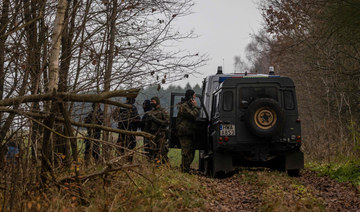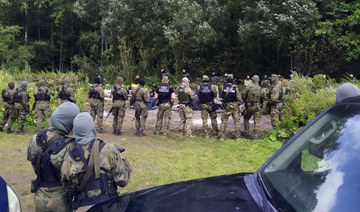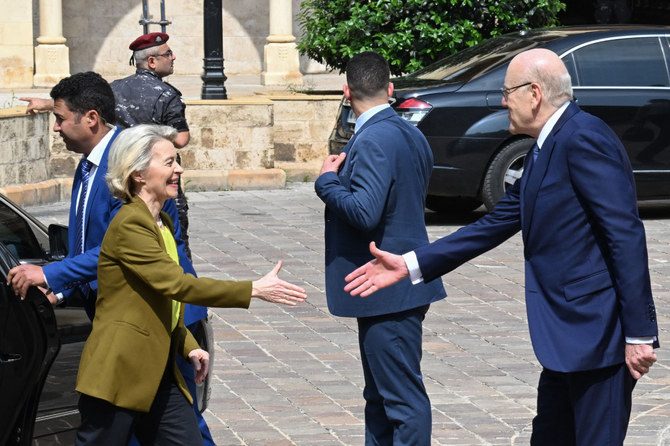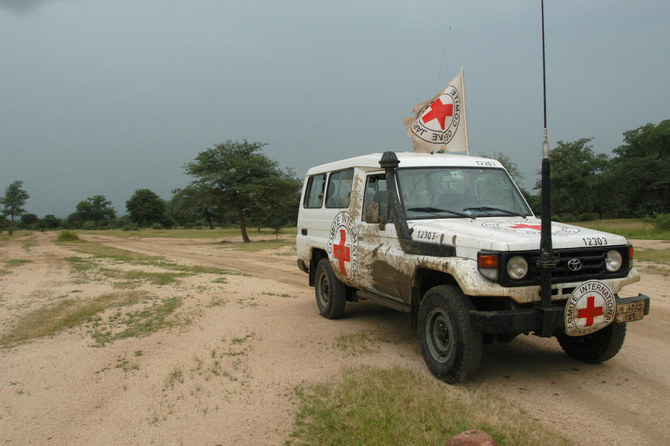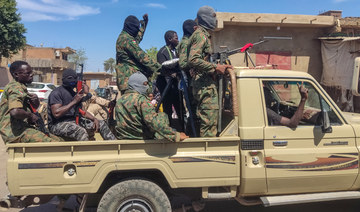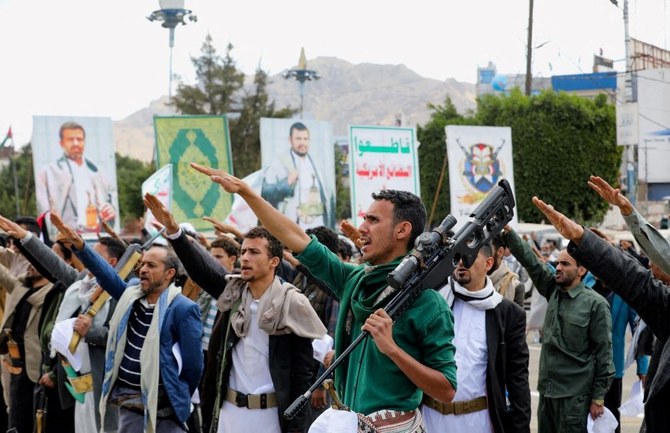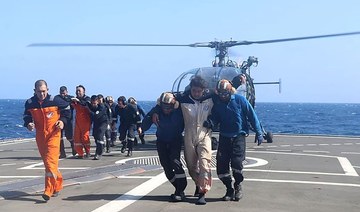ANKARA: Poland, Belarus and Turkey are at the center of a refugee crisis after thousands of migrants from Syria, Iraq and Yemen have become trapped at the Polish border, having been denied entry into Poland and prevented from re-entering Belarus. The crisis has now acquired an international dimension with NATO and Brussels on alert.
Since August, Lithuania, Latvia and Poland — all of which share a border with Belarus — have reported a surge in irregular crossings. The latest figures showed that, in October, around 11,300 migrants mostly from Iraq, Afghanistan and Syria attempted to enter the EU via the Belarus-EU border compared to 150 in the same month last year.
Warsaw initially criticized Turkey for maintaining an open corridor between Istanbul and Minsk, which, it said, helped Belarus to channel refugees from war-torn countries to the Polish border. The Polish government asked Turkey’s national carrier, Turkish Airlines, to ban nationals from Syria, Yemen and Iraq from its flights to Minsk.
Turkey’s Civil Aviation Authority announced on Friday that it had acceded to Poland’s demands, saying: “Due to the problem of illegal border crossings between the European Union and Belarus, it has been decided that citizens of Iraq, Syria and Yemen who want to travel to Belarus from Turkish airports will not be allowed to buy tickets, or board, until further notice.”
The Turkish Ministry of Foreign Affairs marked Poland’s National Day on Thursday by emphasizing the strategic partnership between the two countries, adding: “We stand by our ally Poland in its fight against irregular migration.”
Belarus’s state-owned airline Belavia recently increased the frequency of its flights between Turkey and Minsk. The airline strongly denies any involvement in human trafficking, and announced on its website that it would comply with the decision of the Turkish authorities and would not accept citizens of Iraq, Syria, or Yemen for transportation on flights from Turkey to Belarus from Nov. 12.
“During the crisis, the number of flights from Istanbul to Minsk grew significantly, from seven a week to 28 per week in July. This is why lots of Poles and Europeans connected the dots and claimed that Turkey was either directly supporting the Belarusian regime’s actions or had chosen inaction so as not to endanger its relations with Russia,” Karol Wasilewski, an analyst at the Warsaw-based Polish Institute of International Affairs, told Arab News.
According to Wasilewski, there could have been many reasons behind Turkey’s inaction.
“This could have been due to bad (communication), legal doubts or just a different perception —in Turkey’s eyes, a country which proudly hosts 4 million refugees, the situation on the Poland–Belarus border can barely be called a crisis,” he said.
But, he stressed, the situation on that border has shifted dramatically in recent days. Hundreds of refugees are now living in makeshift camps along the Belarusian-Polish border in harsh winter conditions. Poland has implemented a state of emergency along its border, deploying hundreds of troops using water cannons and pepper spray to deter potential asylum seekers from crossing the border illegally.
“The migrants have been organized into huge columns, and trained by the Belarusian regime on how to break the border infrastructure,” he claimed. “And they did it, effectively also breaking the rules of the Geneva Convention. This is why the whole EU suddenly mobilized itself and expressed support for Poland, but this is also why Turkey’s situation got worse,” he said.
European Commission President Ursula von der Leyen underlined on Monday that the EU may consider sanctions and blacklisting for third countries’ whose airlines contribute to human trafficking.
“Although this was not a threat aimed just at Turkish Airlines, it was clear that the EU thinks the Turkish national carrier is part of the problem, even if it was engaging in this unconsciously,” Wasilewski said.
Two senior EU officials, Margaritis Schinas and Josep Borrell, are expected to visit Turkey, among other countries, to discuss and promote measures to stop refugees flying to Minsk.
Aydin Sezer, an expert on geopolitics and Russia-Turkey relations, said Turkey would attempt to maintain the delicate balance of its relationship with Poland, with which it has defense ties, and with Belarus and Russia.
Poland became the first NATO and EU member to buy Turkish-made drones and has also made a commitment to reaching $10 billion in bilateral trade with Turkey.
Turkey also recently flew F-16 jets in Polish airspace under NATO’s Baltic Air Policing mission and reportedly intercepted low-flying targets over the Baltic Sea.
NATO is obligated to defend the territories of its members, including Poland.
“There is a close relationship between the Turkish and Belarusian leaders, so while Turkey would like to preserve its trade ties with Poland, Ankara won’t risk taking further steps towards mediation between Belarus and Poland in regards to the refugee crisis,” Sezer told Arab News.
However, Turkey will likely take some strategic steps to maintain its international image.
“The commercial value of Turkish Airlines as a national carrier will push Turkey to revise its regional policy for commercial purposes,” Sezer said.
In its statement on Wednesday, Turkish Airlines said the company “makes sure to comply with all security measures and sensibilities in cooperation with international officials in all its flights operated to all corners of the world.”




